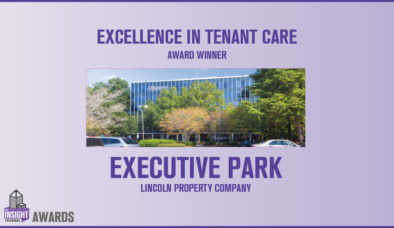Research for Operating Buildings
The real estate market remains on an upward trajectory. Operations professionals may find themselves in a scenario where they are contemplating a staffing increase. Questions that commonly arise around such considerations are, “how many” and “how much”?
How many employees does it take to properly staff a property? How much does it cost to fairly compensate employees?
Maybe a professional is simply trying to determine their own worth at a property.
Regardless of the situation, high-performance building operations are realized when decisions are backed up with data and research.
The Role of Research in Operations
Products like BOMA International’s Experience Exchange Report (EER) have been available for a long time. A subscription to the EER is often one of the first tools that building operations personnel or property management staff will use to budget and forecast.
New Research
While the EER is highly recommended and a great resource for detailed income, expense and occupancy information from thousands of properties across hundreds of markets; there are other costs and considerations that must be made when properly managing and operating a property.
Research from the BOMA Georgia Foundation is helping property managers and operations professionals to better staff their buildings and compensate their staff. Research products provided by the foundation give building engineers and property managers the support they need to build better budgets; make better staffing and hiring decisions; and reasonably compensate employees.
In partnership with Koine Communications, independent contractors and real estate organizations across the United States, the foundation has compiled data on staffing ratios for commercial real estate properties, as well as salary and benefits data.
Using the Data
The data can be used to justify costs to owners, managers and senior staff when making requests for additional personnel or determining whether talent at the property is compensated appropriately at the market value.
With data going back to 2010, there is a large menu of research options that can be purchased online at www.bomageorgiafoundation.org/research.
About the Research
Two popular research products produced by the foundation are the Property Management and Building Engineering Salary and Benefits Survey, and the Commercial Real Estate Staffing Ratio Study.
The Commercial Real Estate Staffing Ratio Studies
The Commercial Real Estate Staffing Ratio Studies are currently available in two major markets, with more markets coming online in the future. Real estate professionals in the Metro Dallas and Metro Atlanta markets can purchase their market research online now. The insightful data from these markets can offer those outside these markets some base-level benchmarks they can use in their own operations planning.
Specifically, these studies address the roles and workloads of personnel serving commercial office buildings in the Dallas and Atlanta Metro areas. Also reported in the responses are breakdowns of building type, lease type, building class and size. All data is reported with a base unit of analysis based on “Headcount per 200,000 Square Feet.”
Salary and Benefits Surveys
The research contained in these surveys from multiple markets across the Southeast includes extensive salary and benefits data for various property management and building engineering positions. The position titles have been standardized and include descriptions, which enable real estate companies to benchmark their salary and benefits in their market.
Currently, salary and benefits data for property management and operations staff has been published in the Metro Atlanta, Raleigh-Durham and Charlotte markets. For large real estate organizations that manage portfolios spanning these markets, there is the opportunity to purchase all three markets in a bundle discount.
Highwoods properties is one such company that expands these markets.
“We are a Southeast region-based company, so this information was critical to help our leaders and managers understand some of the differences between our divisions,” said Mark Gallman, SMA, SMT, LEED GA, with Highwoods Properties.
“I was able to get this for our company to use where our corporate office is based in Raleigh. They were ecstatic to have the information. Our HR director stated that it was like receiving an early Christmas present to help them with industry standards on job titles, descriptions and compensation.”
Flexibility with the Data You Need
There is more savings to the purchaser when the research is bundled. In addition to the research covering salary and benefits from the Southeast United States, opportunities exist to purchase bundles of staffing data from both the Dallas and Atlanta markets. Furthermore, bundles have been packaged to include the salary and benefits research, as well as the staffing ratio studies in the Atlanta market.
Using the Data
There are a few points to keep in mind when it comes to using the data. First, no individual company is identified in these reports. All results are averages of the data reported.
The reports are not recommended benchmarks, but rather a guideline to inform and support decisions, proposals and inquiries related to the subject matter.
Another important matter to consider is that salary and benefits data may not necessarily reflect a candidate’s years of service, experience, a company’s specific market location, size or other unique factors. Across both the salary and staffing data, positions are sometimes not an exact match.
The Results Are In!
At a high level, the data indicate and validate what many operations professionals already knew to be true. Staffing remains lean and mean in the post-recession economy. The reasons for that result may vary.
Additionally, a review of the data show that year-over-year salaries have been rising. One might suspect that with the increased workload on that leaner and meaner staff that employees compensation must increase to retain talent, as well as cover the staff’s cost of living.
For more useful trends and insights, purchase the full reports at http://www.bomageorgiafoundation.org/research
Who Uses the Data?
The data is used by property managers and building engineers seeking a competitive edge.
“The foundation’s salary survey is a useful tool for me and my company, helping us to stay competitive in the market and understand the feasibility of increasing our staff,” said Senior Property Manager Grace Meyers, RPA, with PM Realty Group. “The kind of research conducted by the foundation advances the industry and makes commercial real estate companies more profitable and efficient.”
Do you want to bring this research back to your operations team?
A special offer exists for O+M Insight readers to get this research at a discount. Readers who visit www.bomageorgiafoundation.org/research can select any research product or bundle and us the code “INSIGHT” to get 10 percent off the price of foundation research at checkout.
If you’re interested in collaborating with the BOMA Georgia Foundation to produce research in your market, contact Gabriel Eckert by email at geckert@bomageorgia.org or call (404) 475-9980.
About the Author
In his role as Director of Communications and Technology with the Building Owners and Managers Association of Georgia (BOMA Georgia), Jacob Wilder, CAE, is responsible for producing the association’s publications, eCommunications, websites, awards programs, technology initiatives and membership recruitment. As a member of the American Society of Association Executives (ASAE), Wilder earned the Certified Association Executive (CAE) designation in 2016. Jacob also serves as the 2018-19 chair of ASAE’s Young Professionals Committee, where he helps foster ASAE’s online community Collaborate and works with other members of the committee to develop content for ASAE programming.









